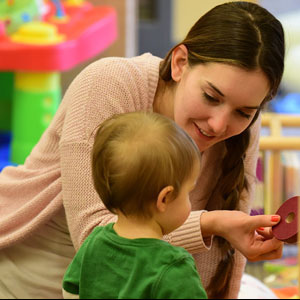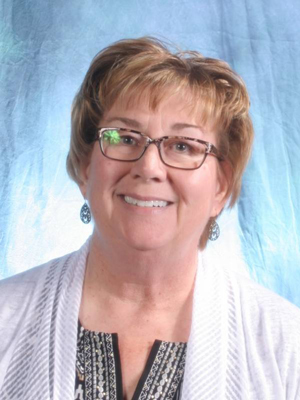MLC Prepares Early Childhood Educators
Early childhood ministries (ECMs) are growing fast in our WELS congregations, and for good reason: These WELS preschools and early learning centers are greenhouses for the gospel, where the Spirit is shining on the tender little hearts of children and growing them up in the faith. Often they carry their stories of Jesus home to their parents as well, with the result that whole families meet Jesus for the first time.
We learn quickly that ECM is not sanctified babysitting but intentional, goal-driven nurture and education.
MLC graduates encourage high school students to consider this challenging and rewarding ministry.
If you know of some high school students who love Jesus and little children and who want to dive into the research and practice of this specific pedagogy, please encourage them to consider MLC. They can study at our state-of-the-art learning center, which you so generously funded a few years ago!



At the MLC Early Childhood Learning Center, college students learn ECE pedagogy under the supervision of expert professors and lead teachers. The center enrolls children birth to age 5, offering them the Word of God, a research-based whole-child curriculum, and a state-of-the-art facility.

Eight Indicators of High-Quality Early Childhood Ministries
 By Professor Cheryl Loomis DMLC ’77
By Professor Cheryl Loomis DMLC ’77
The mission of WELS Early Childhood Ministries (ECM) is to partner with families in providing
Christian care and education for their children. High-quality programs are marked by eight indicators:
1. Christ-centered mission, purpose, vision
The purpose of the early childhood ministry is clearly connected to the work of the church: gospel ministry. High quality is evidenced when that gospel focus—telling others of Jesus’ work of salvation—is seen in all the work of the ECM. ECM is a vital part of the work of the congregation.
2. Ministry team
Gospel ministry is accomplished by a ministry team. The Christ-centered mission provides a focus for the team, and communication is vital in making teamwork a reality. The makeup of a team may look different among congregations, but each member (pastor, ECM director, principal, teachers, board members) works together to support and respect the team’s ministry.
3. Partnership with families
The ECM supports families in their role of nurturing a child, recognizing that God has given parents the responsibility to provide Christian training for their children. A high-quality partnership has a welcoming atmosphere where families are encouraged to participate.
4. Qualified teachers
Early childhood teachers need a solid foundation in the Word. They are actively involved in worship and in the life of the congregation. They are synodically certified. In addition, they have college degrees in early childhood education. Industry standards require degreed teachers who possess a thorough understanding of the theory and practice of early childhood education.
5. Curriculum that addresses all areas of child development
High-quality programs use a research-based curriculum to provide experiences that help children grow in all areas of life. That’s a worldly mark of quality, but it’s important. WELS ECMs provide that and more as children gather daily to hear the Word and as teachers teach “the next generation the praiseworthy deeds of the Lord.”
6. Safe, secure, and age-appropriate environment
A high-quality environment reflects Christ’s love through a display of religious art along with a warm and inviting atmosphere of Christian words and actions. You will recognize it when you see it; it’s evident that this is a Christian space. A high-quality space also includes a variety of materials that will stimulate a child’s curiosity. And the environment doesn’t stop indoors; the outside environment is also filled with materials to explore and discover. Licensing is a mark of quality too. Does the ECM meet building and safety codes? State and local authorities demand it, and families expect it.
7. Appropriate teacher-child ratios
Best practices in early education demand a proper ratio of children to teachers. The younger the child, the smaller the ratio. Maintaining appropriate ratios helps ensure quality as teachers are able to intentionalize their interactions with each child in their care.
8. Support for professional development
High-quality teachers are lifelong learning professionals. A high-quality ECM recognizes the necessity of supporting teachers in this endeavor. Congregations encourage teachers with their words and with financial support for continuing education and professional growth.





